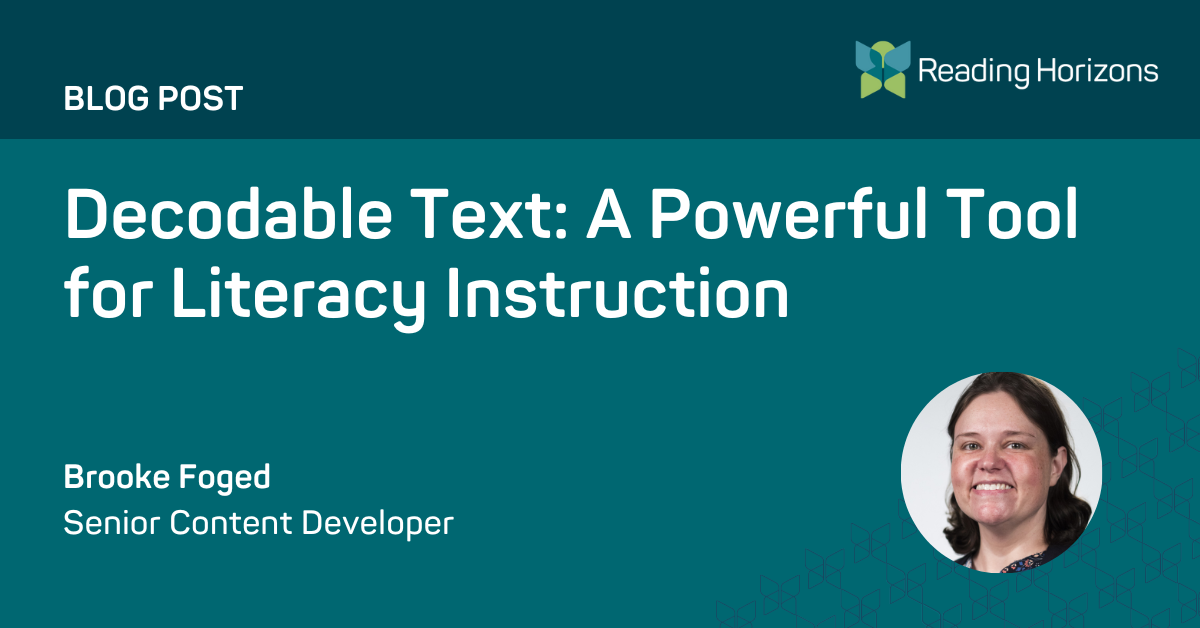
BY BROOKE FOGED, Senior Content Developer
Let’s delve into key insights from a popular episode of the podcast Literacy Talks, featuring experts in the field: Donell Pons, Lindsay Kemeny, and Stacy Hurst. Together, they shed light on the significance of decodable texts in fostering reading proficiency and confidence among students of all ages and abilities.
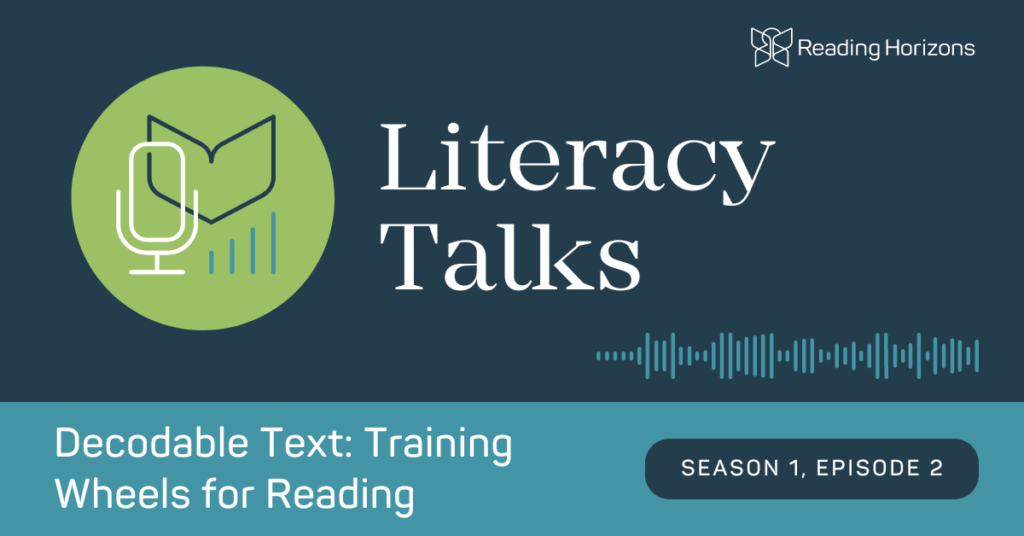
Understanding Decodable Texts
Unlike traditional literature, decodable texts prioritize decoding skills over complex narratives, making them an invaluable tool in early literacy development. Decodable texts are carefully crafted materials designed to align closely with phonics instruction, particularly for beginning and striving readers. As Stacy Hurst, assistant professor of reading at Southern Utah University and Chief Academic Advisor for Reading Horizons, succinctly puts it, they serve as the “training wheels” that guide students toward automatic and proficient reading. Decodable texts are a bridge to authentic text; once students have “trained” on them, they can leave them behind and focus solely on actual authentic literature.
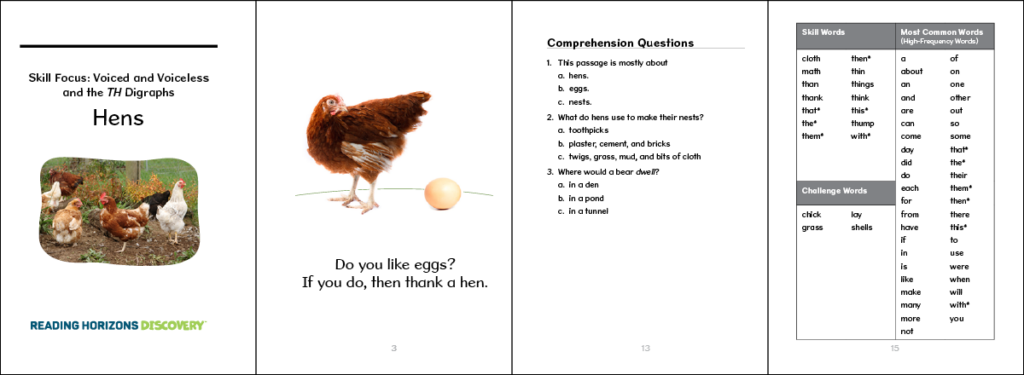
Find free decodable text and more resources in The Science of Reading Collective.
Real Classroom Experiences
Lindsay Kemeny, a dedicated Utah elementary teacher, shares her firsthand experience of transitioning to decodable texts in her classroom. Previously using predictable, repetitive texts, she noticed a lack of engagement and genuine reading progress among her students. However, upon introducing decodable texts, she witnessed remarkable transformations, particularly in striving readers. One memorable moment was when a student with dyslexia joyfully exclaimed, “I’m actually reading the words!” This anecdote underscores the profound impact decodable texts can have on students’ self-esteem and learning outcomes.
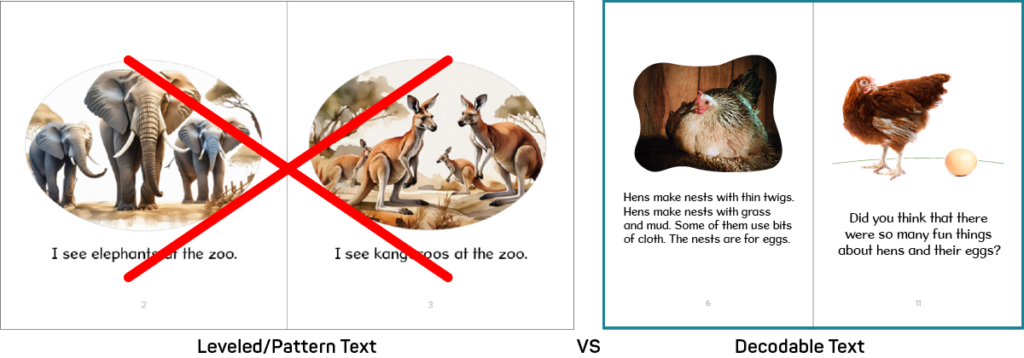
Stacy Hurst recalls one of her first experiences with decodable texts. She was working with a striving third-grade student struggling at a kindergarten reading level. Stacy decided to use a decodable book based on the student’s phonics learning. Initially resistant, the student agreed to read only two pages but ended up reading more, showing excitement and pride in his accomplishment. Stacy notes the importance of using appropriate reading materials tied to a student’s level and interests to foster motivation and significant progress in reading skills.
Addressing a Common Misconception
What is a common misconception? Some perceive decodable texts as dull or limited in literary value. However, educators emphasize their crucial role in building foundational reading skills. Donell Pons highlights how predictable books often promote guessing rather than genuine decoding, hindering your students’ long-term reading proficiency. Decodable texts, on the other hand, empower students to decode words independently, laying a solid foundation for future reading success.
Engaging Parents as Partners
Involving parents in literacy instruction is paramount, and decodable texts offer a unique opportunity for collaboration. Lindsay Kemeny emphasizes the importance of providing parents with guidance and support, ensuring that students receive consistent practice at home. By sharing instructional videos and differentiated materials, educators can empower parents to reinforce phonics skills outside the classroom, fostering a holistic approach to literacy development.
Preparing Future Educators
Stacy Hurst reflects on her role as an educator trainer, equipping future teachers with the knowledge and tools to effectively integrate decodable texts into their instruction. By emphasizing the Simple View of Reading and the significance of decoding skills, she empowers aspiring educators to make informed instructional decisions. Through this proactive approach, educators can ensure that future generations of students receive the literacy support they need to thrive.
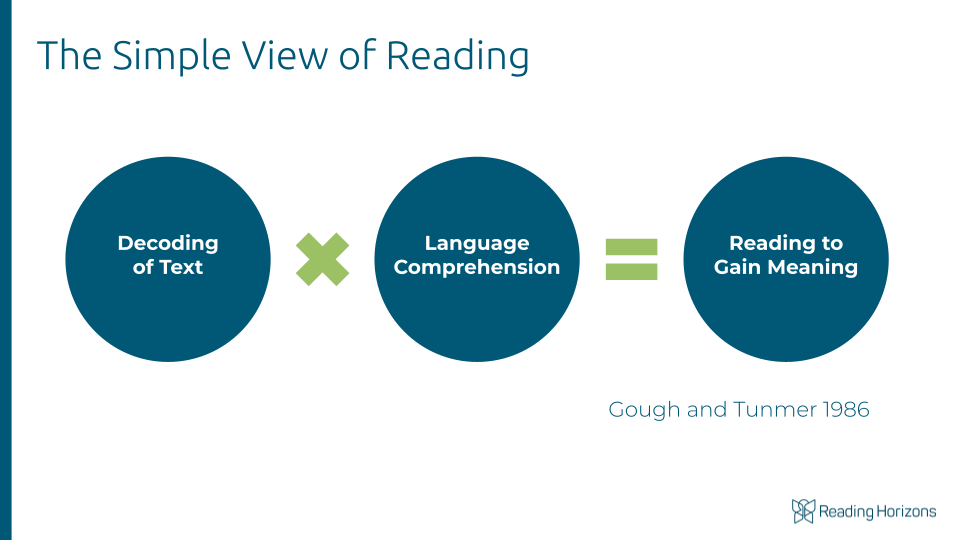
Decodable texts are not just instructional materials; they are catalysts for improved literacy outcomes. As educators, we have the power to shape students’ reading journeys by embracing evidence-based practices and prioritizing foundational skills. By harnessing the power of decodable texts, we can empower your students to become confident, lifelong readers. Let’s continue this important conversation and explore innovative ways to elevate literacy instruction for all learners. Together, we can make a difference in the lives of our students—one decodable text at a time.
Join The Science of Reading Collective and gain access to free decodable books and an exclusive video designed to enhance your classroom instruction. Connect with fellow educators and administrators to share insights, discuss strategies, and discover how decodable texts transform school reading instruction. Don’t miss out on the conversation—join us today!
